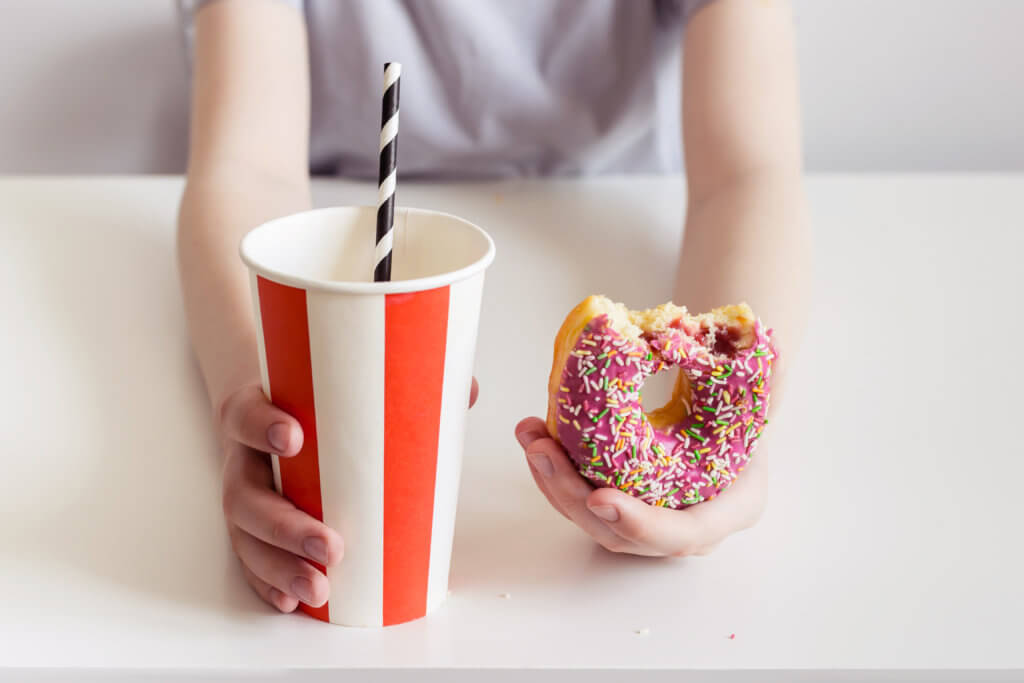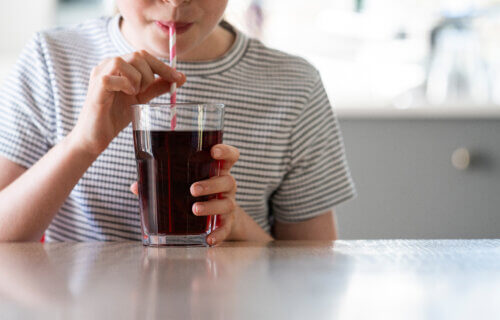SEOUL, South Korea — An alarming new study reveals a link between children guzzling soda daily and underage drinking. South Korean researchers say that young children who frequently consume caffeinated soda may be at a higher risk of alcohol consumption months later.
The Seoul National University study, which involved over 2,000 children between nine and 10 years-old, revealed that those who drank caffeinated soda on a daily basis were twice as likely to admit to trying alcohol a year later.
This study is the first to demonstrate a link between caffeinated beverages and future substance use in young children. The research also indicates that daily caffeinated soda drinkers exhibit traits such as increased impulsivity and poorer working memory, which are known risk factors for substance use disorders.
The study drew upon data from the Adolescent Brain Cognitive Development (ABCD) Study, a large-scale research initiative focused on brain development and child health in the United States. In addition to investigating the connection between alcohol use and caffeinated soda consumption, the study aimed to better understand the relationship between drinking soda and cognitive functions associated with substance use disorders.
To assess cognitive functions, children were given various tasks while their brain activity was monitored. For example, they were asked to determine whether an object shown to them matched the ones from previous trials.
Results showed a significant association between daily caffeinated soda consumption and both high impulsivity and low working memory. Notably, children who regularly consumed caffeinated soda exhibited distinct brain activity patterns compared to their non-drinking peers.

In tasks related to impulse control, daily soda drinkers displayed lower activity in the anterior cingulate cortex (ACC), a brain region often associated with attention deficit hyperactivity disorder (ADHD) and substance use disorders. In working memory tests, these children showed reduced activation in the inferior frontal gyrus (IFG), a part of the frontal lobe. Previous studies have linked decreased activation in the frontal cortex to lower working memory capacity.
“Our findings suggest that daily consumption of caffeinated soda in children is predictive of substance use in the near future,” says study lead author Mina Kwon, from the Department of Psychology at Seoul National University, in a media release. “One possible explanation is that the substances contained in caffeinated soda (caffeine and sugar) could induce a toxicological effect on the brain, making the individual more sensitive to the reinforcing effects of harder drugs like alcohol.”
This phenomenon is known as the “gateway hypothesis.” However, an alternative theory called the “common liability hypothesis” suggests that children who struggle to regulate their impulses may be more likely to seek out and try substances like caffeine early on, potentially leading to experimentation with harder drugs like alcohol as they grow older.
“Frequently consuming caffeinated soda could indicate a higher risk of initiating substance use in the future, due to the common risk factors between the two behaviors,” notes Woo-Young Ahn, professor and director of the Computational Clinical Science Laboratory at Seoul National University. “Our results have important implications for public health recommendations, as our study provides novel insight into the neurobehavioral correlates of caffeinated soda consumption in children, which has rarely been evaluated.”
A notable limitation of the study is the exclusion of a substantial number of samples with missing data, potentially impacting the findings. Researchers acknowledged that multiple variables besides caffeinated soda intake could mediate the relationship between neurobehavioral risk factors and future alcohol use.
The team calls for further research to explore whether a pattern exists between caffeinated soda consumption among nine to 10-year-olds and their use of other substances as they age, highlighting the critical need for future investigations in this area.
The study is published in the journal Substance Use & Misuse.
You might also be interested in:
- Orange soda changing forever? FDA’s plan to ban food additive affects nearly 100 products
- Fountain of germs! Water contaminated with harmful bacteria discovered in fast food soda machines
- Drinking soda linked to obesity among teenagers in over 100 countries

